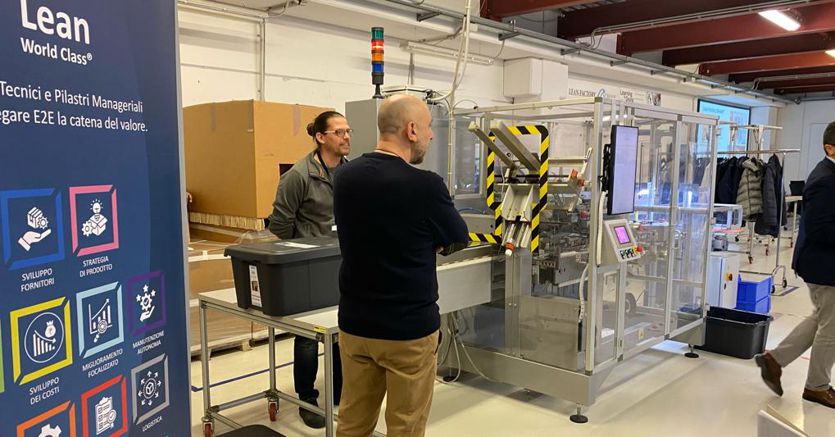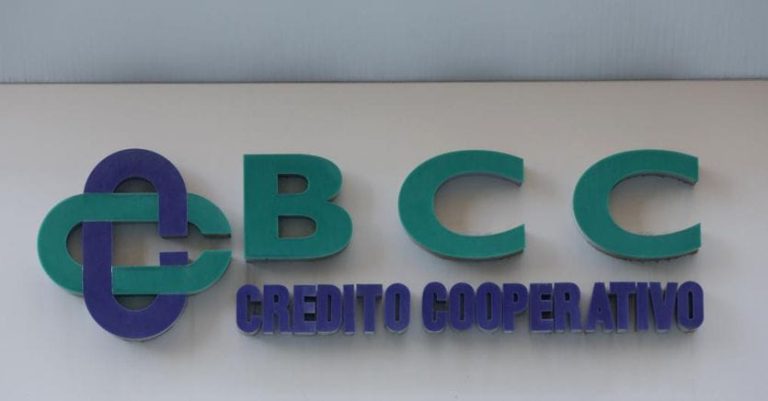«It is a fact that in years of pandemic and geopolitical conflicts, those who have stressed the Lean thinking approach to the entire supply chain have found themselves in more difficulty, between blocked supplies, intermittent logistics, supplies with biblical times and skyrocketing costs, but these are problems that are independent of the individual company and although they have led to a relaxation of the principles of “lean thinking” in the warehouse phases, they have actually strengthened them in the production and service departments”. With these words Michele Bonfiglioli, CEO of Bonfiglioli Consulting – a Bolognese consultancy company founded 50 years ago by his father Romano, pioneer of Lean thinking in Italy – welcomes us to the Lean Factory School on the occasion of an unprecedented open day to see first-hand how lean thinking is inherent in the very current concepts of Industry 5.0, as it is synonymous with sustainability (because it is aimed at eliminating all waste), and an essential prerequisite for digitalisation, which requires speed, efficiency and real-time control of every process and activity .
Measuring the benefits of “Lean thinking” in the Bologna gym
«The five key principles of Lean are really simple, but it is one thing to listen to the theory, another to put it into practice on digitalized workstations and production lines» explains Giorgio Troni, principal Organization & Training of Bonfiglioli Consulting, after finishing the lesson in around twenty managers and technicians, who in this real miniature factory in the Valsamoggia industrial area, train to acquire “lean” thinking of Japanese origin, working on workbenches, balanced assembly lines and automatic packaging machines. To test how by reorganizing processes and reducing waste, errors, shifts and unnecessary movements, hourly productivity and product quality can be improved by 15 to 20%, production losses can be reduced by 10 to 15% and production costs can be cut by 3-4%. direct transformation costs.
The Japanese philosophy of total quality: 5 principles and 5S
The starting point of “lean thinking” is to identify and eliminate waste (“Muda” in Japanese) to produce more with fewer resources. Beyond common sense, what makes the difference in the Lean company is the ultimate goal of every choice: customer satisfaction and therefore the total quality of the product/service offered, on which each employee is engaged, sharing a desire towards improvement continuous (the famous “kaizen”). An approach that involves the continuous monitoring of each process/step through the measurement of statistical data returned in a transparent way to everyone. The magic number of Lean thinking is 5. There are in fact five key principles of lean transformation: identifying the value (value ), what the customer is willing to pay a price for; identify the value stream and then align the activities that create value in the correct sequence, reducing and eliminating everything else; make the flow flow without interruptions from the raw material to the finished product (flow); let the flow (pull) be driven by customer requests by only making the requested products when they are needed (the so-called “takt time”); aim for perfection, therefore zero errors and zero waste. To these 5 principles of Lean thinking, the sixth was added, which aims to involve the supply chain in the continuous and continuous flow. A logic of efficiency and effectiveness that showed its side in the Covid years because the manufacturing companies with stocks in the purchasing and finished products warehouses fared better. And there are also 5 “S” (initials of Japanese words) that make up the operational recipe of the “lean” company, be it a factory or a public administration: separate (Seiri) what is necessary from what is useless; order (Seiton) so that it is easy and simple to access premises, materials, data); clean (Seiso) to work in environments in perfect conditions; standardize (Seiketsu) to make each activity and rule clear; support (Shitsuke) by training people and providing them with information and methods.
A fashionable thought in the 5.0 era, from Lamborghini to Exor Int.
«Lean has never gone out of fashion in manufacturing departments, in fact it is an even more necessary approach today when companies are called upon to create increasingly complex products and services, continuously innovating and personalizing them, and need to work in cross-functional teams with a strong involvement of all human resources”, explains Bonfiglioli, leading a team of over 100 people between Italy, the United States and Asia, after the acquisition in 2022 of the controlling share of Octagona, a Modena-based company specialized in internationalization services. Just take a visit inside Lamborghini, Philip Morris or Faac – to stay on the Via Emilia – to understand how much “slenderness” is behind the dream supercars, or the revolutionary smoke-free products, or the intelligent access systems. «One of the most interesting cases of Lean change that we have recently followed is that of Exor International, a Venetian company that designs and produces human-machine interface and IoT solutions for the automotive sector, a digital company in all its dimensions, a symbol of ‘operational excellence that combines Lean, digitalisation and sustainability’, says the CEO, who has over 850 companies involved in the training programmes, 300 companies supported. And now he dreams «of consolidating Bonfiglioli Consulting as the first Italian-owned company in a segment where foreign multinationals such as Porsche Consulting, Efeso Consulting, Festo Consulting are competing for the market».







+ There are no comments
Add yours